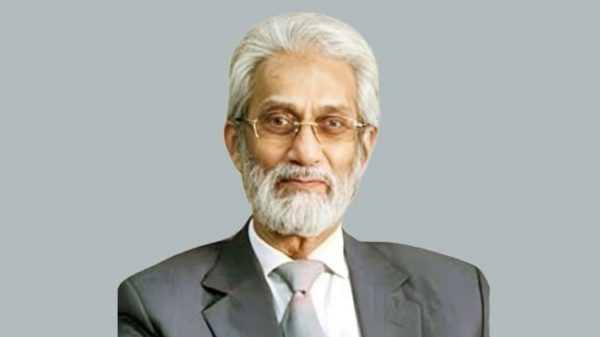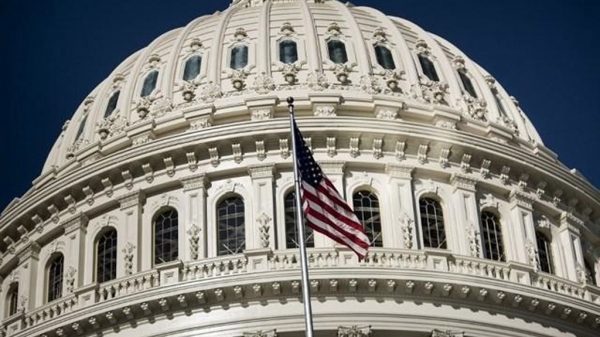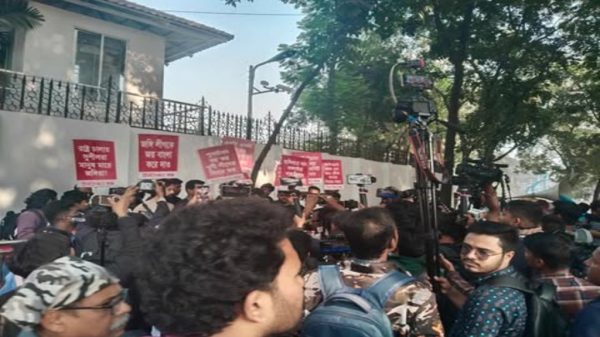Wanted: mass uprising against neoliberal Matrix

A FEW months before the coronavirus shut down the world, Chile exploded against neoliberalism. A World Bank economist, Sebastian Edwards, was on the ground to record the rebellion:
‘On Octoiber 18, 2019, and to the surprise of most observers, massive protests erupted throughout the country. Demonstrations were triggered by a small increase in metro fares—thirty pesos, or the equivalent of four cents of a dollar. But the rallies were about much more than the fare increase. Hundreds of thousands of people marched in several cities and demonstrated against the elites, corporate abuse, greed, for-profit schools, low pensions, and the neoliberal model. Demonstrators asked for debt forgiveness for students and free universal health services.’
Having done my dissertation on Chile over 40 years earlier and participated in the international solidarity against the dictator August Pinochet, who subjected the country to both neoliberal transformation and massive repression, I was elated. I even entertained the idea that the rebellion in Chile could be the spark for a global revolt against neoliberalism, much like the Bolsheviks thought their seizure of power in Russia would trigger the socialist revolution in Europe. But that fanciful thought was quickly shelved. Despite the international coverage of events there, Chile stood alone.
But not in vain: an anti-neoliberal president, Gabriel Boric was elected president in 2021 and neoliberal policies are now being rolled back in that country, though in the teeth of strong opposition from the local elite, technocrats, foreign investors, and the multilateral agencies.
So the obvious next question: why, despite its obvious failures, has neoliberalism not provoked similar rebellions in other parts of the global South?
A rebellion overdue
ONE thing I can say is that it’s long overdue. Take the case of the Philippines. After 45 years, we are an economic wasteland, except in the eyes of our elites and technocrats. The poverty rate stands at 25 per cent of the population, despite efforts to doctor the statistics, whereas in China, it’s estimated by the World Bank at 2 per cent. The Gini coefficient, which measures inequality, is at .50, one of the highest in the Global South. Owing to our economic managers’ push during the Fidel Ramos presidency to bring down tariffs on imports to 5 per cent or less, our manufacturing is nearly gone. Elimination of quotas on agricultural imports, including rice, as demanded by the World Trade Organisation, has led to nearly all our key agricultural lines being dominated by imports, mainly from the United States and the European Union. With manufacturing dead, agriculture dying, business processing operations and services unable to generate a significant number of new jobs domestically, our work force is left to scurrying abroad in search of decent, non-dead-end jobs. Without the $37 billion in remittances they send back annually, the economy would be dead in the water.
If it were just a case of objectively documenting the devastating impact of neoliberal policies, our side won the battle as early as the 2000s, with detailed studies like Focus on the Global South’s The Anti-Development State: The Political Economy of Permanent Crisis in the Philippines. There was even a finance secretary who admitted that there’s ‘an uneven implementation of trade liberalisation… which has killed so many local industries.’ He was ignored. The list of industrial casualties included paper products, textiles, garments, ceramics, rubber products, furniture and fixtures, petrochemicals, wood, and petroleum oils. It did not matter.
Disregarding the facts, the neoliberal machine ground on. Under Rodrigo Duterte, the rice quota was eliminated in favor of “rice tariffication,” the foreign investment act was liberalised, and retail trade was further opened up to foreign investors. Under the Bongbong Marcos, Jr administration, there is again the perennial push by the neolibs to eliminate the nationalist provisions of the 1987 constitution in order to make reversal of 45 years of neoliberal initiatives impossible.
Albert Einstein defined insanity as doing the same thing over and over and expecting different results. What better description is there of the psychosis that has our economic managers in its grip?
The Matrix
NEOLIBERALISM seems impermeable to the facts. The theory is that markets are efficient, and privatisation, deregulation, and liberalisation will bring about the best of all possible worlds, so if the facts don’t fit the theory, so much the worse for the facts. The image that has haunted me is one from the movie The Matrix, where human beings are plugged into a system that has them dreaming of a pleasant alternate reality while their bodies are being sucked dry of the nutrients and energy to feed alien beings.
Our Matrix is the neoliberalism that converts the country into an economic disaster zone while the people are distracted by the dream of a land of milk and honey that will be delivered by untrammeled market forces. Like the promise of resurrection in the Bible, this state of grace, we are told, will come to pass. We just need to have faith.
So if reason and the facts are on our side, why have we not been able to unplug Filipinos from the neoliberal dream? Why has neoliberalism become so ‘naturalised’, or seen as the natural order of things? I have long pondered this and come up with a number of explanations.
Explaining neoliberal hegemony
FIRST, for a long time, corruption, especially in the form of crony capitalism under the dictator Ferdinand Marcos, Sr was seen as the main reason for the underdevelopment of the country, and, with its emphasis on the market instead of politics as the driver of the economy, neoliberalism was seen as an ‘antidote’ to corruption. The government’s presence in the economy, especially its regulatory apparatus, was, in this view, the primordial source of corruption, with businesses seeking advantage, not through market competition, but via seeking special favors from officials in return for bribes.
Second, neoliberalism was not simply an external imposition. It was internalised by a whole generation of Filipino economists and technocrats who studied at US universities or worked at the World Bank and International Monetary Fund at a time that Keynesianism had been displaced as the reigning economic paradigm, its credibility undermined by its failure to address the stagflation that hit Western economies in the 1970s. With its worship of the market, neoliberal ideology became synonymous with economics.
Third, the country’s elites were unified in support of neoliberalism, with no ‘national bourgeoisie’ around to break the consensus. The prominent role of World Bank and IMF-backed technocrats did not mean that the country’s economic elites did not play a role in promoting and institutionalizing neoliberalism. That there was wider ruling-class support for neoliberalism was evidenced by the support for it by representatives of the influential Makati Business Club, which brought together influential domestic corporate elites like the Zobels and foreign transnational corporate elites. Their support could be counted on so long as neoliberal policies did not include initiatives to demonopolise the sectors these elites dominated, such as land, real estate, and banking and finance. Neoliberal measures were mainly focused on tariff reform, weakening labor, deregulation, and privatisation, so the oligarchy found them non-threatening. And, of course, those sectors of the economic elite dependent on foreign capital were all for more investment liberalisation. When it came to taking a leading role in ideologically promoting neoliberalism, however, the corporate elite left that task largely to the technocrats and economists, though the Makati Business Club would occasionally weigh in at strategic junctures.
Fourth, there was, for a time, no credible alternative to neoliberalism as a paradigm after the fall of socialism and the discrediting of Keynesianism. It was only in the mid-1990s that the developmental state model, which attributed a central role to the state in the success of Japan, South Korea, and Taiwan, offered an powerful alternative paradigm. But being mainly advanced by political scientists, like Chalmers Johnson or Alice Amsden, it did not register in the line of vision of Filipino technocrats and economists in ideological thrall to the neoliberal orthodoxy.
These circumstances may help explain why even after its being discredited by the 2008–09 global financial crisis and its multiple failures to deliver on its promises locally, neoliberalism remained the default mode in economic policy-making. To be fair, there were Filipino economists who began to question the model privately. However, there was great reluctance to publicly break with it since that would endanger professional advancement.
But are these reasons enough to explain the failure of our critique to connect with the people? There seems to have been a bigger explanation, and that is, our side was debating on the basis of facts and rationality, whereas our antagonists were coming from a stance of faith and revelation, with their revealed truth being the Friedrich Hayek-Milton Friedman bible. It was the old Reason versus Revelation debate, but in a secular guise.
Seattle and primacy of action
IN THINKING about how to break out of this conundrum, I remembered how the events in Seattle in December 1999 that broke the global elite consensus around globalisation and neoliberalism might have some lessons for us.
In the decade prior to Seattle, there were a lot of studies, including UN reports, that questioned the claim that globalisation and free market policies were leading to sustained growth and prosperity. Indeed, the data showed that globalisation and pro-market policies were promoting more inequality and more poverty and consolidating economic stagnation, especially in the global South. However, these figures remained ‘factoids’ rather than facts in the eyes of academics, the press, and policymakers, who dutifully repeated the neoliberal mantra that economic liberalisation promoted growth and prosperity. The orthodox view, repeated ad nauseam in the classroom, the media, and policy circles, was that the critics of globalisation were modern-day incarnations of Luddites, the people who smashed machines during the Industrial Revolution, or, as Thomas Friedman disdainfully branded us, believers in a flat earth.
Then came Seattle. After those tumultuous days, the press began to talk about the ‘dark side of globalisation’, about the inequalities and poverty being created by globalisation. After that, we had the spectacular defections from the camp of neoliberal globalisation, such as those of the financier George Soros, the Nobel laureate Joseph Stiglitz, the star economist Jeffery Sachs, and many others.
True, neoliberalism continues to be the default discourse among most economists and technocrats globally, though many only pay it lip service. But a decade before the 2008 financial crisis, it had already lost much of its credibility and legitimacy. What made the difference? Not so much research or debate but action. It took the anti-globalisation actions of masses of people in the streets of Seattle — which interacted in synergistic fashion with the resistance of developing country representatives in the Sheraton Convention Centre and a police riot, to bring about the spectacular collapse of a WTO ministerial meeting — to translate factoids into facts, into truth. Seattle had both real and ideological consequences.
Seattle was what the philosopher Hegel called a ‘world-historic event.’ Its enduring lesson is that truth is not just out there, existing objectively and eternally. Truth is completed, made real, and ratified by action. In Seattle, ordinary women and men made truth real with collective action that smashed an intellectual paradigm that had served as the ideological warden of corporate control.
Facts aren’t enough: challenge to Gen Z
SEATTLE’S impact in the Philippines was limited. Contrast that with its impact in Chile, which was not only the first country to be subjected to thoroughgoing neoliberalism, but where it had been imposed by massive repression, unlike in the Philippines where it was portrayed as ‘liberating’ after the crony capitalism of the Marcos period. Moreover, while Seattle was inspiring, it was mass action that made the difference in weakening the hold of neoliberalism.
The 2019 uprising had its roots in the massive protests against the privatisation of the educational system in 2006, which saw the participation of hundreds of thousands of high school students. The Chilean millennials then took that spirit of rebellion to other areas, like transport, industry, the mines, and social security over the next 13 years. Political mobilisation in disparate areas were brought together under the slogan of ending neoliberalism. It was an approach that demanded not merely the repeal of specific neoliberal policies, but the dismantling of the whole neoliberal paradigm governing the economy. By 2019, the situation was ripe for revolt, and one of the leaders of the mass uprising was a millennial, Gabriel Boric, who would be elected president in 2021, at the age of 36.
Our side has the arguments and the facts, which is why neoliberal economists and technocrats have consistently refused to engage us in debate. But facts are not enough. Facts need a mass movement to convert them into truth. That is the lesson of Seattle and Chile. Will Gen Z, which the events in Gaza have awakened, also assume the role of Neo, the hacker played by Keanu Reeves, and lead the effort to unplug our people from the neoliberal Matrix, in the Philippines and elsewhere?
CounterPunch.org, June 14. Walden Bello, a columnist for Foreign Policy in Focus, is the author or co-author of 19 books, the latest of which are Capitalism’s Last Stand? (London: Zed, 2013) and State of Fragmentation: the Philippines in Transition (Quezon City: Focus on the Global South and FES, 2014).























Leave a Reply